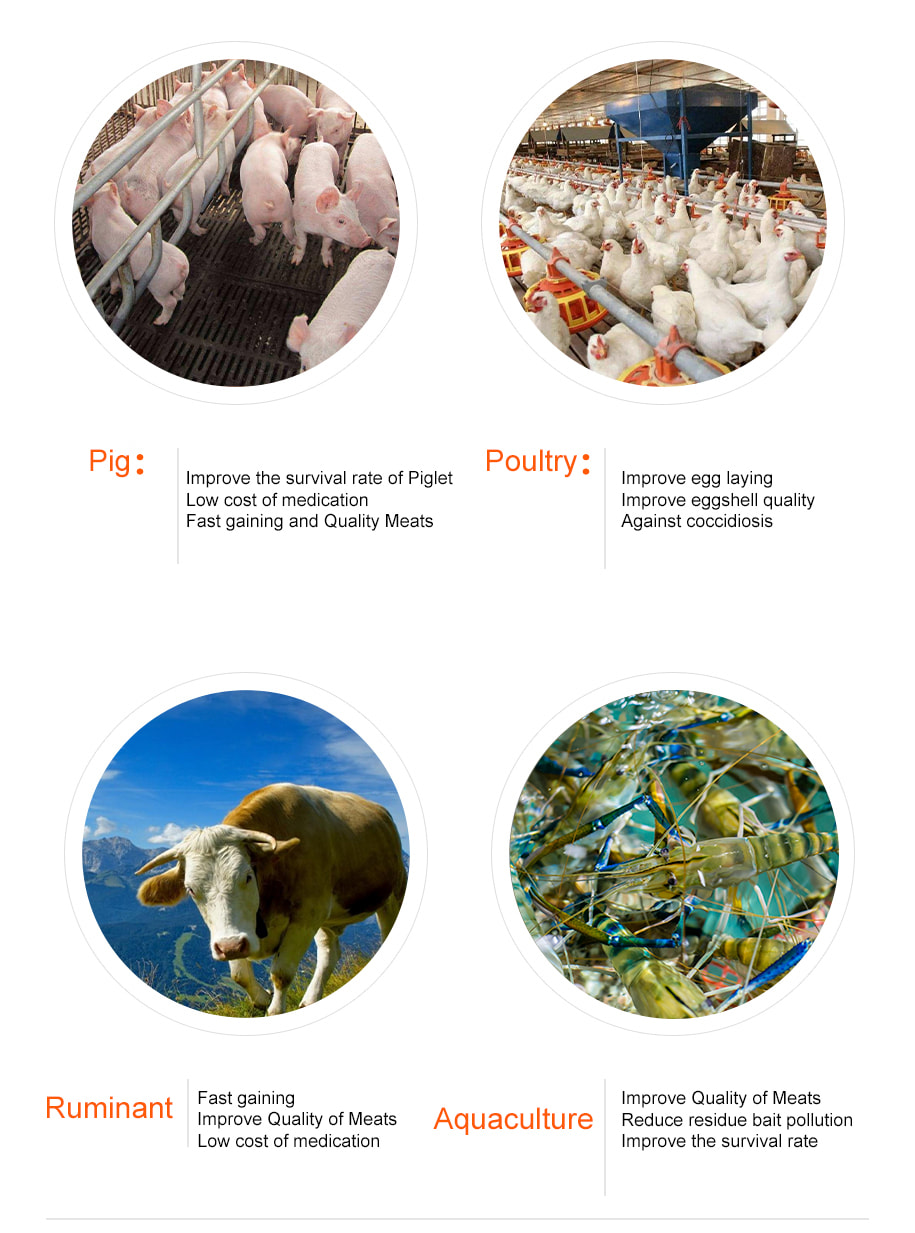1. Betaine hydrochlorideBetaine hydrochloride is ubiquitous in animals, and beet is the plant with the most betaine. In recent years, more and more attention has been paid to the application of betaine hydrochloride in livestock and poultry industry. This is because betaine can provide active methyl groups in the metabolism of living organisms, form methyltransferases with cysteine, and participate in methyl reactions, so it is called "life methylating agent". In addition, choline chloride and methionine also have the function of providing active methyl groups.
2. FunctionBetaine hydrochloride provides high-efficiency active methyl groups for the body After years of research, it has been found that betaine hydrochloride, as an intermediate metabolite in animals, indirectly participates in animal protein and fat metabolism. From the perspective of its physiological mechanism, betaine hydrochloride indirectly participates in many physiological metabolic processes in the body by providing methyl groups and synthesizing various nutrients in animals. Methyl is a necessary group for the synthesis of proteins, carnitine, creatine, phospholipids, epinephrine, ribonucleic acid and deoxyribonucleic acid and many other substances with important physiological activities in the animal body, and one of the main methyl donors in the animal body. Choline cannot provide methyl group, and it needs to be converted into betaine through cell mitochondria before it has the ability to provide methyl group and synthesize lipoproteins, amino acids and other substances. Therefore, when the supply of choline in the feed is insufficient, some betaine is added Replaces the role of choline. Appropriate supplementation of betaine in the diet can replace the other main methyl donor, methionine, for methylation, thereby saving methionine and improving protein utilization. The ability of betaine hydrochloride to provide methyl can also promote the synthesis of carnitine in animals and improve the intensity of fat metabolism.
 3. Relieve osmotic pressure and anti-stress
3. Relieve osmotic pressure and anti-stressBetaine hydrochloride has a buffering effect on osmotic pressure shocks. When the external osmotic pressure changes dramatically, betaine can be absorbed by cells to maintain normal osmotic pressure balance, while preventing the loss of water in cells and the invasion of salts. Diarrhea in piglets or coccidiosis in poultry often results in dehydration and intestinal ionic and osmotic imbalances in animals. At this time, the body's demand for methyl groups increases, so the body needs methylation at this time to establish an immune defense mechanism. In addition, betaine can effectively prevent water loss by improving the function of cell membrane Na/K pump, prevent hyperkalemia caused by diarrhea, and play a very important role in maintaining and stabilizing intestinal ion balance and function of animals.
Betaine hydrochloride provides methyl as a cell osmotic protective agent, which can maintain the normal osmotic pressure of animal cells, prevent dehydration caused by water loss in cells, and stabilize intestinal ion balance. Thereby improving the resistance of the chicken body.
4. Stabilized vitaminsVitamins have poor stability and are easily affected by light, heat and humidity, and will be gradually lost over time. Especially in the process of feed processing, storage and transportation, most vitamins have a phenomenon of more or less reduction in potency. In addition, choline chloride is often the main reason for the destruction of vitamins due to its high water absorption and strong acidity. Betaine has strong moisturizing properties, can enhance the stability of vitamins, prevent the oxidation of fat-soluble vitamins A, D, E, and K, and protect their potency. Studies have shown that betaine and choline chloride were tested for vitamin stability in chicken premixes, and it was found that betaine could improve the stability of vitamins A, K3, B1, and B6 during storage at 20 to 25 °C. It is found that the higher the temperature, the stronger the effect of betaine. It is a more economical and practical method to successfully replace all the choline in the diet with betaine.
